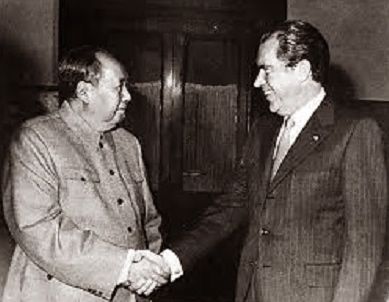
Through my cataracts
One of the bonuses of being elderly is the experience of seeing history unfold before one’s eyes.
I was already born when World War II began. I saw its course and its end. I saw the beginning and the end of several other wars, in Korea, Vietnam, Laos and Cambodia.
I watched the ideological wars that the United States waged against fascist and communist governments.
In the newspapers and newsreels, I saw the handshakes between Truman and Stalin, Kennedy and Khrushchev, Nixon and Mao, Ford and Brezhnev, Carter and Deng, Reagan and Gorbachev, Clinton and Jiang.
So the formal greeting between Obama and Raúl Castro did not surprise me in the least. At some time, differences and divergences — even hatred — give way to dialogue and mutual understanding.
True, their handshake was brief and solely in the context of their presence at an international gathering, but, as the English proverb says, “mighty oaks from little acorns grow.”
Maybe in the near future, representatives of Cuba and the United States, in public or in private, will shake hands to reestablish contacts of all kinds — diplomatic, economic, cultural, sports — that may signal an end to this ideological war that has lasted more than half a century. Let us hope so.
The United States has been able to overcome prejudice and rancor on many occasions and has taken steps to benefit both itself and its interlocutors. This is a propitious moment to do so again, especially if we consider the observation that Castro made in his farewell message to Nelson Mandela.
Without mentioning names, he spoke of hemispheric nations that, “to the benefit of their peoples” and “respectful of their diversity,” share “the conviction that dialogue and cooperation are the road to the solution of differences and the civilized coexistence of those who think differently.”
As Chinese philosopher Lao Tzu put it, a journey of a thousand miles begins with a single step.
Emilio Paz is an occasional contributor to Progreso Weekly.

